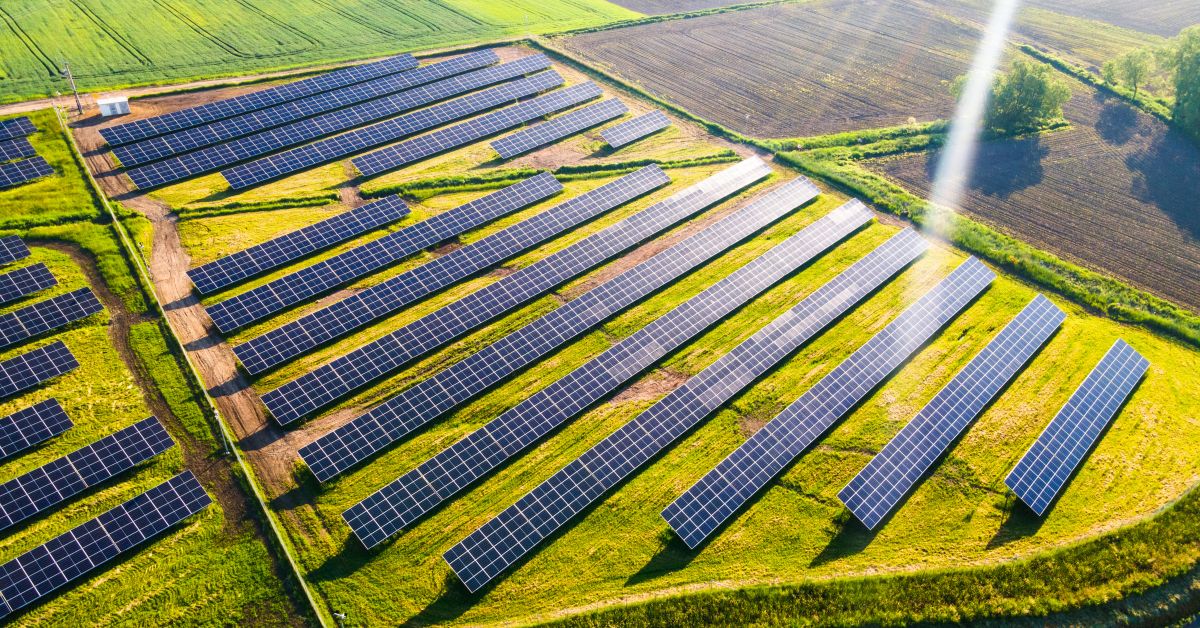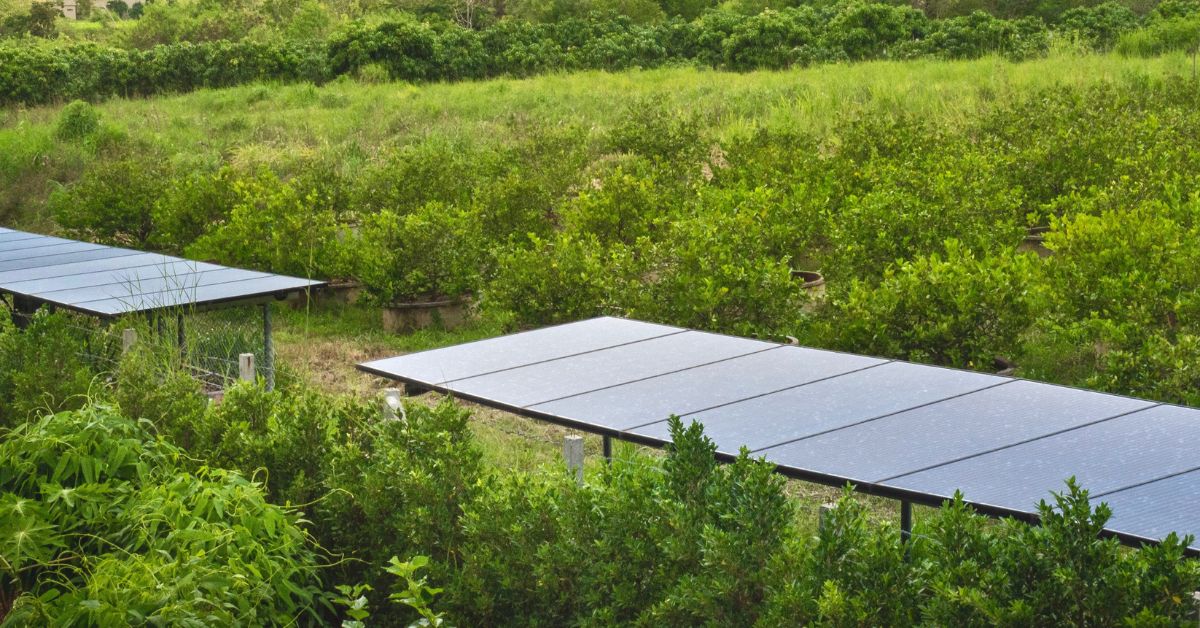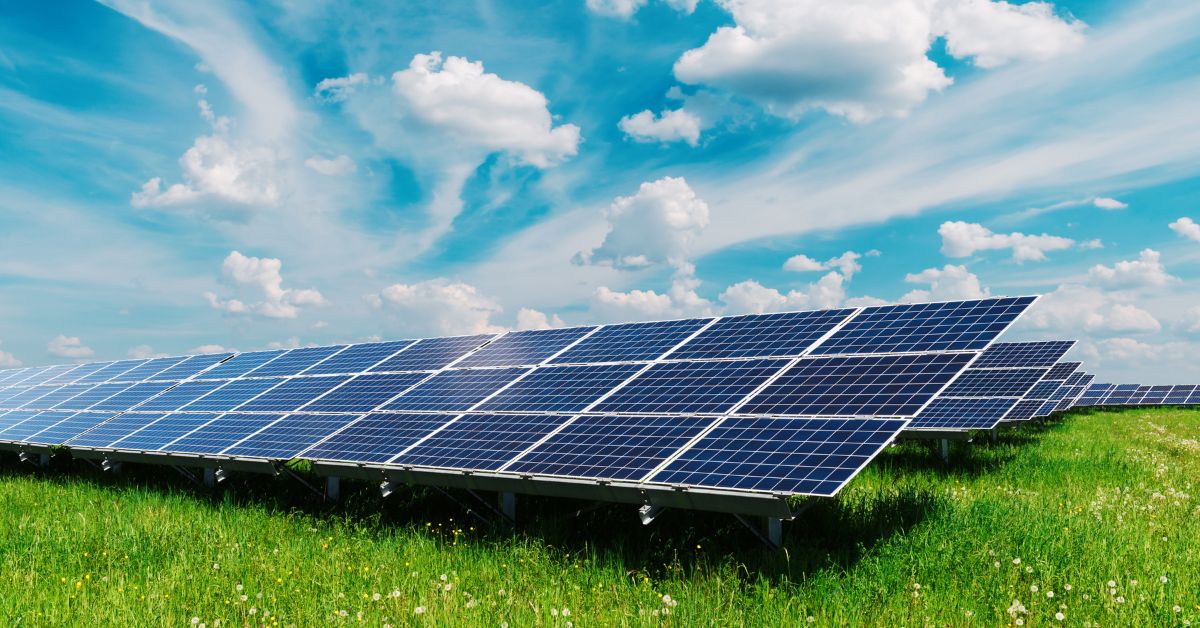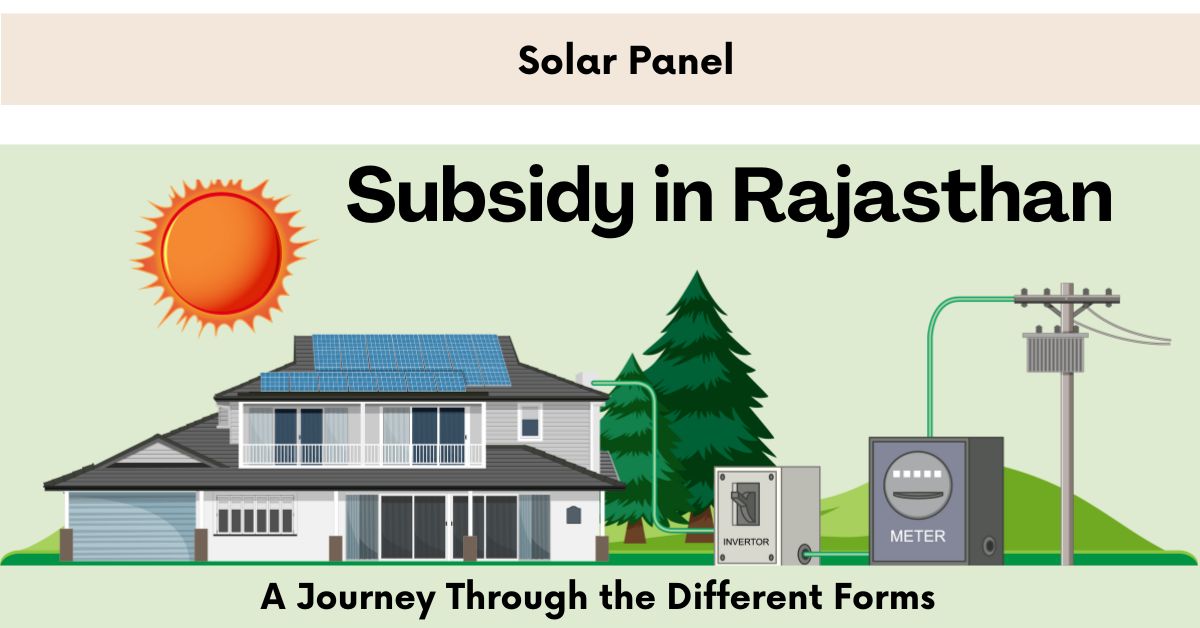Solar Panel Subsidy in Rajasthan
The Solar Panel Subsidy in Rajasthan is a government initiative aimed at promoting renewable energy adoption across the state. Under this scheme, residents, farmers, and businesses can receive financial support to install solar panels, reducing upfront costs and making solar energy more accessible.
With Rajasthan’s abundant sunlight, the subsidy encourages clean energy generation, leading to lower electricity bills and reduced carbon footprints. Beneficiaries can avail of subsidies covering up to 40% of the installation cost for residential systems and special incentives for agricultural use. This program is a crucial step toward sustainable development and energy self-reliance in Rajasthan.
Table of Contents
Solar Panel Subsidy in Rajasthan: Empowering a Sustainable Future
In the face of escalating global energy demands and environmental concerns, solar power has emerged as one of the most viable solutions for sustainable energy generation. Rajasthan, one of India’s largest and sunniest states, has taken significant steps to harness its abundant solar energy potential. The state government has introduced various subsidies, schemes, and incentives to promote the installation of solar panels, both at residential and commercial levels. This initiative not only contributes to reducing the state’s carbon footprint but also helps alleviate the pressure on conventional energy resources.
In this blog, we will explore the solar panel subsidy programs in Rajasthan, discuss their implications for residents and businesses, and understand how these initiatives align with both national and global sustainability goals.
Why Solar Power in Rajasthan?
Rajasthan is uniquely positioned to become a solar energy hub due to its geographical and climatic conditions. Here’s why solar power makes sense for the state:

- Abundant Sunlight: Rajasthan receives an average of 300 to 330 sunny days per year, making it one of the best locations in the world for solar energy generation. The state has an annual solar insolation of about 6.0-7.0 kWh/m²/day, which provides excellent potential for solar power generation.
- Vast Land Availability: With large tracts of barren and arid land, Rajasthan offers significant space for installing solar farms and plants. These underutilized lands can now serve as hubs for clean energy production.
- Energy Independence: Rajasthan is heavily dependent on coal and other fossil fuels for its energy needs. By embracing solar energy, the state can reduce its dependence on non-renewable sources and move toward energy independence.
- Environmental Sustainability: The use of solar energy reduces greenhouse gas emissions, thus helping to mitigate climate change. As a part of India’s commitment to the Paris Agreement, Rajasthan’s shift to solar energy aligns with the nation’s broader goals of sustainability.
The Role of Solar Panel Subsidies
The Rajasthan government, along with central government initiatives, offers subsidies and incentives to make solar power more accessible to the public. These subsidies play a crucial role in reducing the upfront cost of solar panel installations, thus encouraging more households, businesses, and industries to switch to renewable energy.
Subsidies are primarily offered in two key areas:
- Grid-Connected Solar Rooftop Systems: This refers to solar panels installed on rooftops that are connected to the grid. The power generated from these panels can be consumed locally, and any surplus can be fed into the grid. Consumers are credited for the excess power they generate, effectively reducing their electricity bills.
- Off-Grid Solar Systems: These systems are typically installed in areas where grid connectivity is not available or is unreliable. Off-grid solar systems are more common in rural areas where power cuts are frequent, providing a stable and sustainable source of electricity.
Subsidy Schemes Available in Rajasthan
The Government of Rajasthan offers multiple subsidy schemes for the installation of solar panels, in partnership with the Ministry of New and Renewable Energy (MNRE), which operates at the national level. Let’s explore the different subsidies and incentives offered:
Subsidy for Grid-Connected Rooftop Solar Systems
The government provides financial assistance to residential, commercial, and industrial entities that wish to install grid-connected rooftop solar systems. Some of the key features of this scheme include:
- Subsidy Rate: The Rajasthan government provides up to 40% subsidy on the installation cost of solar panels for systems up to 3 kW capacity. For systems between 3 kW and 10 kW, a subsidy of 20% is provided.
- Eligibility: This scheme is available for residential consumers, housing societies, community centers, and public sector buildings. Commercial and industrial consumers are also eligible, although the subsidy percentage may vary.
- Net Metering: Under the net metering system, consumers can sell surplus electricity generated from their rooftop solar system back to the grid. This allows them to receive credits on their electricity bills, making solar energy more financially attractive.
- Cost Savings: With the subsidy in place, the cost of solar panel installation is significantly reduced, making it more affordable for households and businesses to switch to renewable energy.
Subsidy for Off-Grid Solar Systems
For rural areas and places where grid connectivity is not reliable, the Rajasthan government, in conjunction with MNRE, offers subsidies for off-grid solar systems. These systems typically come with battery storage solutions that allow for uninterrupted power supply.
- Subsidy Rate: The government provides up to 90% subsidy on off-grid solar systems for rural areas, particularly in places where conventional electricity supply is scarce or inconsistent.
- Target Beneficiaries: This subsidy primarily targets rural households, farmers, and small businesses that face frequent power cuts or lack reliable access to electricity.
- Advantages for Rural Areas: Off-grid solar systems provide a stable and sustainable source of energy in rural areas, improving productivity, supporting agriculture, and enhancing quality of life.
Solar for Agriculture: The KUSUM Scheme
The Pradhan Mantri Kisan Urja Suraksha evam Utthaan Mahabhiyan (PM-KUSUM) scheme is an initiative by the central government, in collaboration with the Rajasthan state government, to promote solar energy usage in the agricultural sector. Rajasthan has a significant agricultural base, and the KUSUM scheme offers various subsidies and incentives to support farmers.

The scheme focuses on three main components:
- Component A: This involves the installation of decentralized solar power plants with a capacity of up to 2 MW on barren lands. These plants are owned by farmers or cooperatives and the electricity generated is sold to the grid, providing farmers with a supplementary income.
- Component B: Solar-powered pumps are provided to replace diesel pumps used by farmers for irrigation. These solar pumps are available with up to 60% subsidy, with the government covering a significant portion of the cost.
- Component C: Existing grid-connected agriculture pumps are solarized under this component, enabling farmers to reduce their reliance on grid power and sell excess electricity to the grid.
Through the KUSUM scheme, the Rajasthan government aims to increase agricultural productivity, reduce the environmental impact of diesel pumps, and provide a reliable source of energy to farmers.
The Rooftop Solar Revolution: Net Metering Explained
One of the most important elements of the solar panel subsidy program in Rajasthan is the net metering system. This system allows consumers to generate their electricity using rooftop solar panels and sell any excess power back to the grid. The concept of net metering has been a game-changer for individuals and businesses alike.
Here’s how net metering works:
- Electricity Generation: Solar panels on the rooftop generate electricity during the day, which can be used for various household or business purposes.
- Surplus Power: If the electricity generated exceeds the consumption, the surplus power is exported to the grid. The consumer is credited for the power they feed into the grid.
- Electricity Credits: Consumers receive credits in their electricity bills for the surplus power exported to the grid, effectively reducing their overall energy costs.
- Financial Benefits: Net metering has made solar energy a financially viable solution. With subsidies in place, the initial cost of installation is reduced, and over time, the system pays for itself through savings on electricity bills.
How to Avail Solar Panel Subsidy in Rajasthan
The process to avail of a solar panel subsidy in Rajasthan is fairly straightforward, but it does involve several steps. Here is a breakdown of the process:
Step 1: Choose the Right Installer
It is essential to select a government-approved vendor or installer to be eligible for the subsidy. These vendors will be able to guide you through the process, from selecting the appropriate system to handling the paperwork.
Step 2: Submit Application
Once the installer has been selected, an application for the subsidy must be submitted. The application will be reviewed by the relevant authorities to ensure eligibility.
Step 3: Installation and Inspection
After approval, the solar panel system will be installed by the vendor. Following installation, the system will undergo an inspection by the government authorities to ensure it meets the required standards.
Step 4: Receive Subsidy
Once the installation is complete and has passed inspection, the subsidy amount is disbursed to the consumer. This amount is typically credited to the consumer’s account or deducted from the total installation cost.
Challenges and Future Outlook
While Rajasthan has made significant strides in promoting solar energy through subsidies and incentives, there are still challenges to be addressed:

- High Initial Costs: Despite the subsidies, the upfront cost of solar panel installation can still be a barrier for some households, especially in rural areas.
- Lack of Awareness: Many residents, particularly in rural areas, are unaware of the subsidies available and the benefits of solar energy. Increased awareness campaigns are needed to encourage broader adoption.
- Maintenance Issues: Solar panels require periodic maintenance, and many consumers may not be familiar with the upkeep necessary for efficient functioning.
- Grid Stability: As more consumers adopt solar power, the stability of the grid becomes a concern, especially with the increased inflow of surplus electricity.
However, the future of solar energy in Rajasthan remains bright. With continuous advancements in solar technology, increasing government support, and growing awareness of the environmental and financial benefits, Rajasthan is well on its way to becoming a leader in solar energy production.
FAQs About Solar Panel Subsidy in Rajasthan
Q1. What is the solar panel subsidy scheme in Rajasthan?
The Rajasthan government offers subsidies for installing rooftop solar systems under the state’s solar policy. This encourages households and institutions to adopt renewable energy.
Q2. How much subsidy is provided on solar panels in Rajasthan?
The government provides subsidies ranging from 20% to 40%, depending on the capacity and type of solar installation (residential, commercial, or institutional).
Q3. Who is the eligible for the solar subsidy in Rajasthan?
Residential homeowners, housing societies, and government buildings are eligible for the subsidy. Commercial and industrial installations are typically excluded from this subsidy.
Q4. How do I apply for the solar panel subsidy in Rajasthan?
You can apply through the Rajasthan Renewable Energy Corporation Limited (RRECL) website, or contact approved solar vendors who handle the application process.
Q5. What is the process of getting a solar subsidy in Rajasthan?
The process involves selecting an empaneled vendor, installing the solar system, and submitting necessary documents to RRECL. Once verified, the subsidy amount is credited directly to your account.
Q6. What is the maximum capacity eligible for the subsidy?
Subsidies are typically available for solar systems up to 10 kW for residential sectors. Larger installations may not receive the same subsidy benefits.
Q7. Is there any income limit for availing of the subsidy?
No, there is no income limit for availing solar panel subsidies in Rajasthan. All eligible applicants can benefit from the scheme.
Q8. How long does it take to receive the solar panel subsidy?
It generally takes a few months to receive the subsidy after installation, depending on the completion of documentation and approval by authorities.
Q9. Are there any ongoing maintenance costs after installation?
While the initial cost is reduced through subsidies, ongoing maintenance costs must be borne by the system owner. These are typically low for solar panels.
Q10. Is the solar subsidy available for both grid-connected and off-grid systems?
The subsidy is primarily available for grid-connected rooftop solar systems. Off-grid systems may not be covered under the state’s subsidy scheme.
Q11. Can I claim a subsidy for installing solar panels on a rented property?
No, typically the property owner needs to apply for the subsidy. Tenants are generally not eligible to receive the subsidy directly.
Q12. Can I install solar panels through any vendor to claim the subsidy?
No, only vendors empaneled with RRECL are authorized to install systems that qualify for the subsidy. Make sure to select from the approved list.
Q13. Does the solar subsidy cover the entire cost of installation?
No, the subsidy covers a percentage of the installation cost, usually up to 40%. The remaining cost must be borne by the applicant.
Q14. What are the benefits of installing solar panels apart from the subsidy?
Besides the subsidy, solar panels help reduce electricity bills, provide long-term energy security, and contribute to environmental sustainability by reducing carbon footprints.
Q15. Is there any government loan or financing option for solar installations?
Yes, several banks and financial institutions provide loans for solar installations, often at reduced interest rates under schemes like the Pradhan Mantri Sahaj Bijli Har Ghar Yojana (Saubhagya).
The solar panel subsidy programs in Rajasthan have opened up numerous opportunities for residents and businesses to embrace clean, renewable energy. By reducing the cost of solar panel installation and offering attractive incentives such as net metering and off-grid solutions, the state government is fostering an environment where solar energy can thrive.
Rajasthan’s journey toward becoming a solar powerhouse is a reflection of the state’s commitment to sustainability, economic growth, and energy independence. As the state continues to invest in renewable energy, it sets a powerful example for other regions to follow, ensuring a greener and more sustainable future for generations to come.
By participating in these subsidy programs, individuals and businesses not only contribute to a cleaner environment but also save on energy costs, making solar power a win-win solution for everyone involved.
Click here to learn more about Solar Panel Subsidy in Rajasthan
Click here to learn more about How Many Solar Panels Do I Need For My Home

